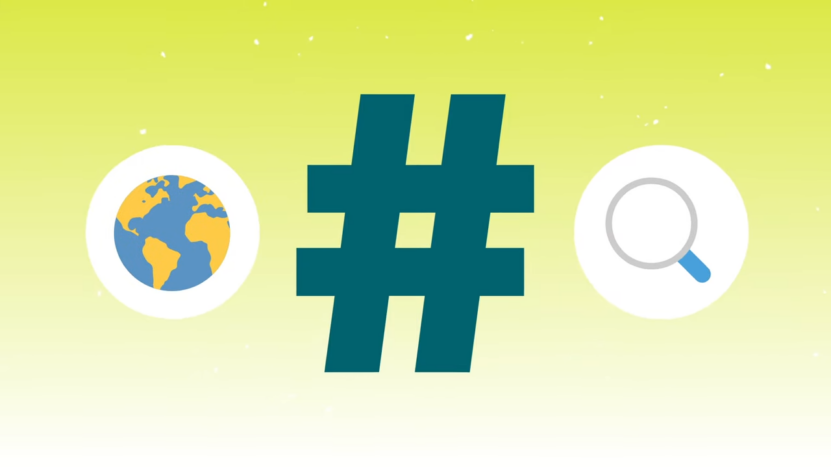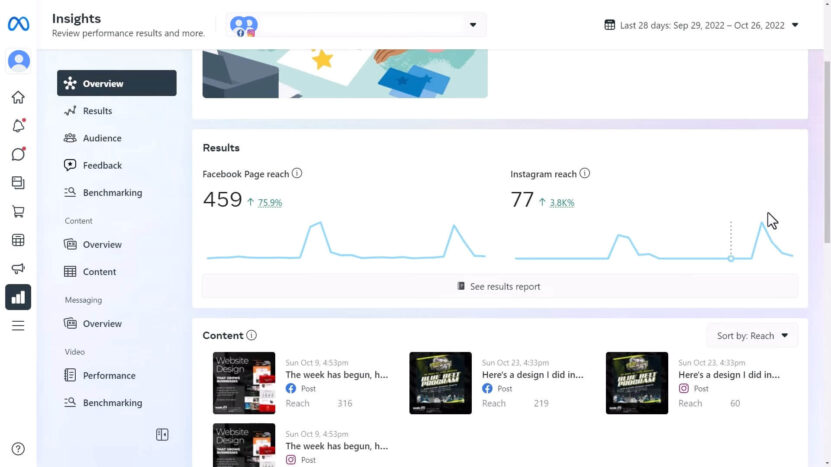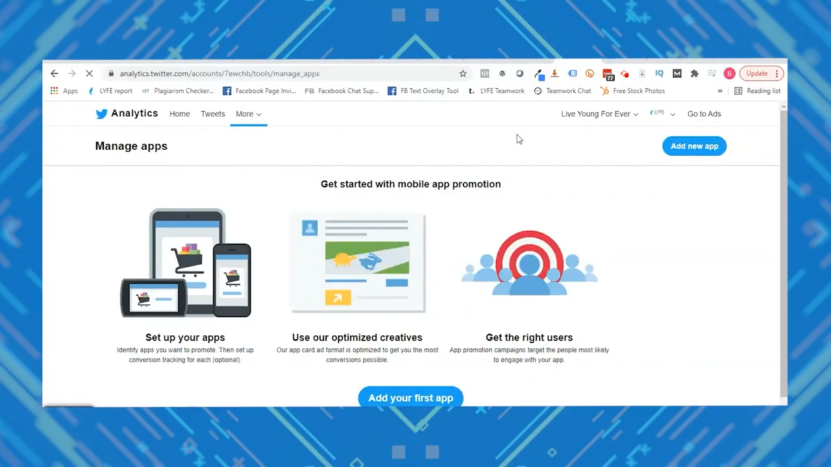Did you ever ask yourself “Why is social media marketing for authors so important for your book?” Think of it this way: you’ve written an amazing book, but if you’re not reaching the right audience, it’s like opening a surfboard store in Kansas City.
You might not sell many books, not because your book is bad, but because you’re not connecting with the right people. That’s where social media comes in – it helps you find and target your ideal audience.
If you’re not used to creating social media content, don’t worry. As a writer, you might be more comfortable working alone. But just like you set goals for your writing, you should set goals for your social media marketing.
1. Define Your Target Audience

As a writer, your goal might be to sell a million copies of your book. And that’s great! Many writers have achieved that goal. But no writer who has sold a million copies has done so by targeting everyone.
They know who their book was written for, and they focus on reaching those people in their book marketing. Before you start thinking about what to post on social media, consider who you’re posting for. You don’t start any social network with followers, after all. So, where do you find your target audience?
Start by following people you genuinely want to interact with – people who would actually interact with you. Follow people whose content interests you and aligns with your book’s topic or genre.
Once you’re following them, engage with their posts by responding to their tweets and starting conversations. Remember, social media marketing is a two-way street. When you understand who you’re writing for, your social media presence will start to grow organically.
There are several free and paid tools available to help you find your target audience, such as Facebook and Twitter. Use these platforms to connect with your ideal readers and build a community around your book.
2. Develop a Consistent Voice

You likely have a distinct writing voice. This voice should also be reflected in your social media posts. Make sure your posts are engaging and show that you enjoy interacting with your audience.
Knowing who your audience is and what they’re interested in can help you craft the right message for your book marketing. If you’ve sold a few hundred books but have zero interaction on your social media accounts, it might be because your message isn’t resonating with your audience.
When you are aware of that, you can create messages that are tailored to their interests and needs. Be yourself, but make sure you’re presenting yourself in a way that your readers can connect with.
Pay attention to the demographics and interests of your followers. If most of your followers are in their 20s, they might not relate to your love of Murder She Wrote.
Similarly, if most of your followers are on the East Coast, they might not understand your In-N-Out Burger references. And if you get negative feedback from a post about not wanting to have children, it might be because many of your followers are parents. Use this information to adjust your messaging and better connect with your audience.
3. Develop a Social Media Calendar

Your social media posts should be strategic, not random. While it’s okay to add posts in the moment, you should aim to schedule at least one post per day on Twitter and two posts per week on Instagram and Facebook.
When creating a social media calendar, it can be helpful to use themes for each day of the week. For example, you could post inspirational quotes on Mondays, share reviews on Tuesdays, and so on. This approach can help you avoid social media writer’s block and ensure that you’re consistently posting engaging content.
Remember, consistency is key when it comes to social media marketing. By developing a social media calendar and sticking to it, you can build a strong online presence and connect with your target audience.
4. Key Benefits of Social Media Marketing
While scheduling your posts is important, it’s also crucial to show your audience that there’s a real person behind your social media accounts. This is the key benefit of social media marketing for authors – the ability to engage with your audience in real time.
One way to do this is by posting something topical at least once a week. This could be a photo of something you’re doing, a question to spark conversation or a comment on a current event.
By being topical, you’re showing your audience that you’re engaged with the world around you and that you’re interested in connecting with them on a personal level. This can help build a stronger connection with your followers and keep them engaged with your content.
So don’t be afraid to mix things up and post something unplanned every now and then. It can go a long way in building a loyal following and establishing a strong online presence.
5. Establish Yourself as an Authority Figure

To build a strong online presence and connect with your target audience, it’s important to establish yourself as an authority figure in your genre. One way to do this is by making recommendations to your followers.
At least once a week, share something that you think your readers would enjoy. This could be a book, movie, website, conference, or anything else that aligns with their interests. By doing so, you’re demonstrating your expertise and showing your audience that you’re in tune with their needs and preferences.
Remember, your recommendations don’t always have to be directly related to your book or genre. The goal is to provide value to your followers and establish a strong connection with them. So don’t be afraid to think outside the box and share something unexpected every now and then.
When considering what to recommend, keep in mind your genre and how certain content may resonate more strongly with your audience based on their genre preferences.”
6. Encourage Sharing to Expand Your Reach
To grow your online presence and reach a wider audience, it’s important to create content that your followers will want to share with their own networks. At least once a week, aim to post something unique and shareable that will resonate with your audience.
This could be a thought-provoking quote, a funny or controversial statement, a compelling image, or an informative infographic. The key is to create content that speaks to your audience and encourages them to engage with it and share it with others.
By doing so, you’ll increase your visibility and attract new followers who are interested in your content. And as your network grows, so will your opportunities to connect with potential readers and promote your book.
7. Engage with Your Audience

One of the most important aspects of social media marketing is engagement. It’s not enough to simply post content and hope that people will find it and interact with it. You need to be proactive in engaging with your audience and building relationships with them. Take at least 5 to 10 minutes each day to read and comment on other people’s posts.
Be personal and genuine in your interactions, and show that you’re interested in what others have to say. By doing so, you’ll build a stronger connection with your followers and create a sense of community around your brand.
Remember, social media is a two-way conversation. The more you engage with your audience, the more they’ll engage with you. So make sure to prioritize engagement as part of your social media marketing strategy.
8. Curate and Share Relevant Content
Sharing other people’s content is a great way to provide value to your followers and build relationships with other influencers in your niche. Spend a few minutes each day searching for and sharing content that you find interesting and relevant to your audience.
This could be anything from a blog post or article to a quote or image. Just make sure it aligns with your brand and the interests of your followers. By curating and sharing high-quality content, you’ll establish yourself as a trusted source of information and build a loyal following of engaged readers.
Remember, social media is all about give and take. When you share other people’s content, they’re more likely to share yours in return. So make sure to include sharing as part of your daily social media goals.
9. Monitor Your Online Presence

Keeping track of who’s talking about you and what they’re saying is an important part of social media marketing. But as a busy author, you don’t have time to constantly monitor your social media accounts for mentions and comments.
That’s where tools like Mention come in. Mention is a paid service that alerts you whenever someone mentions your name or your book online. It also tracks the overall sentiment of those mentions, so you can see whether people are saying positive or negative things about you.
By using a tool like Mention, you can stay on top of your online presence without having to spend all day monitoring your social media accounts. This way, you can focus on writing your next book while still staying engaged with your audience and responding to any important mentions or comments.
10. Adjust Your Content to Each Platform
When it comes to social media marketing, it’s important to remember that each platform has its own unique audience and style. That’s why it’s a mistake to simply post the same content on Twitter and Facebook without making any adjustments.
To get the most out of your social media marketing, you need to tailor your content to each platform. For example, Twitter is often used for quick updates and casual conversations, while Facebook is better suited for longer posts and more in-depth discussions.
By understanding the strengths and weaknesses of each platform, you can create content that resonates with your audience and drives engagement. So take the time to learn about each social media channel and adjust your messaging accordingly. Your fans will appreciate the effort, and you’ll see better results from your marketing efforts.
11. Use Proper Hashtags

Hashtags are a powerful tool for expanding your reach on social media. By using relevant hashtags, you can connect with new audiences and join larger conversations in your genre or industry. However, it’s important to use hashtags strategically. Here are some tips to keep in mind:
- Don’t overdo it. Using too many hashtags can make your posts look spammy and desperate. Stick to one or two relevant hashtags per post.
- Be specific. Using generic hashtags like #excited or #happy won’t help you connect with your target audience. Instead, use hashtags that are specific to your genre, industry, or event.
- Create your own branded hashtags. Using unique hashtags that are specific to your brand can help you build a community around your work.
- Encourage your followers to use your branded hashtags when talking about your book or sharing related content.
By using hashtags strategically, you can expand your reach, connect with new audiences, and build a stronger online presence.
12. Use Facebook Analytics to Understand Your Audience

Facebook Analytics is a powerful tool for social media marketing for authors. It can help you gain insights into your followers and their behavior. By analyzing this data, you can tailor your social media strategy to better engage with your audience and reach new readers.
To access your Facebook Analytics, go to your Facebook page and click on “Insights” in the top white bar. From here, you’ll see an overview of your reach and engagement.
In the side panel, select “People” to see demographic information about your followers, such as their age, gender, and location. This information can be incredibly valuable as you plan your marketing and promotion efforts.
For example, if you notice that a significant portion of your followers are based in a particular region, you may want to target your advertising or outreach efforts in that area. By using Facebook Analytics to understand your audience, you can create more targeted and effective social media campaigns that resonate with your followers and attract new readers to your work.
13. Use X(ex Twitter) Analytics to Understand Your Followers

X also provides analytics to help you understand your followers. I can be crucial for social media marketing for authors. There are various free and paid tools available to help you gain insights beyond what Twitter offers.
A very popular tool is Tweepsmap, which offers a free option. It can show you where your followers are located, but not their gender or age. If your book sales are not meeting your expectations, take a step back and consider whether you truly understand your audience.
Building a social media following takes time and persistence. It’s a long-term process that you should be working on as you write your book, not just when you’re preparing to release it.
Don’t get discouraged if your social media following isn’t growing as quickly as you’d like. Set achievable goals and stay consistent in your efforts. With persistence and a strategic approach, you can build a strong social media presence that will help you connect with your audience and promote your book effectively.
Conclusion
Social media marketing for authors is an important tool for your book and connecting with your audience. By defining your target audience, developing a consistent voice, and using analytics to understand your followers, you can build a strong online presence and promote your book effectively.
Remember to be persistent and consistent in your efforts, and don’t be afraid to engage with your audience and share content that resonates with them. With the right strategy and mindset, you can use social media to grow your readership and build a successful writing career.
I’m Anastasia, and I’ve just wrapped up my postgraduate studies in literature. I absolutely love writing books. It’s my way of weaving new worlds and breathing life into the characters that keep me up at night. Literature isn’t just a field of study for me; it’s a canvas where I paint with words. Through my writing, I hope to connect with others who share my love for storytelling and to contribute something meaningful to the literary world.
Related Posts:
- 7 Best Ways to Find the Right Editor for Your Book -…
- Write a Book Description That Retains Your Readers
- How to Create a Marketing Plan for Your First Book
- Guide to Get Your Book into Libraries - How to Secure a Spot
- How to Self-Publish a Book - Insider Tips for…
- Which Book Formats to Publish? eBooks or Print








